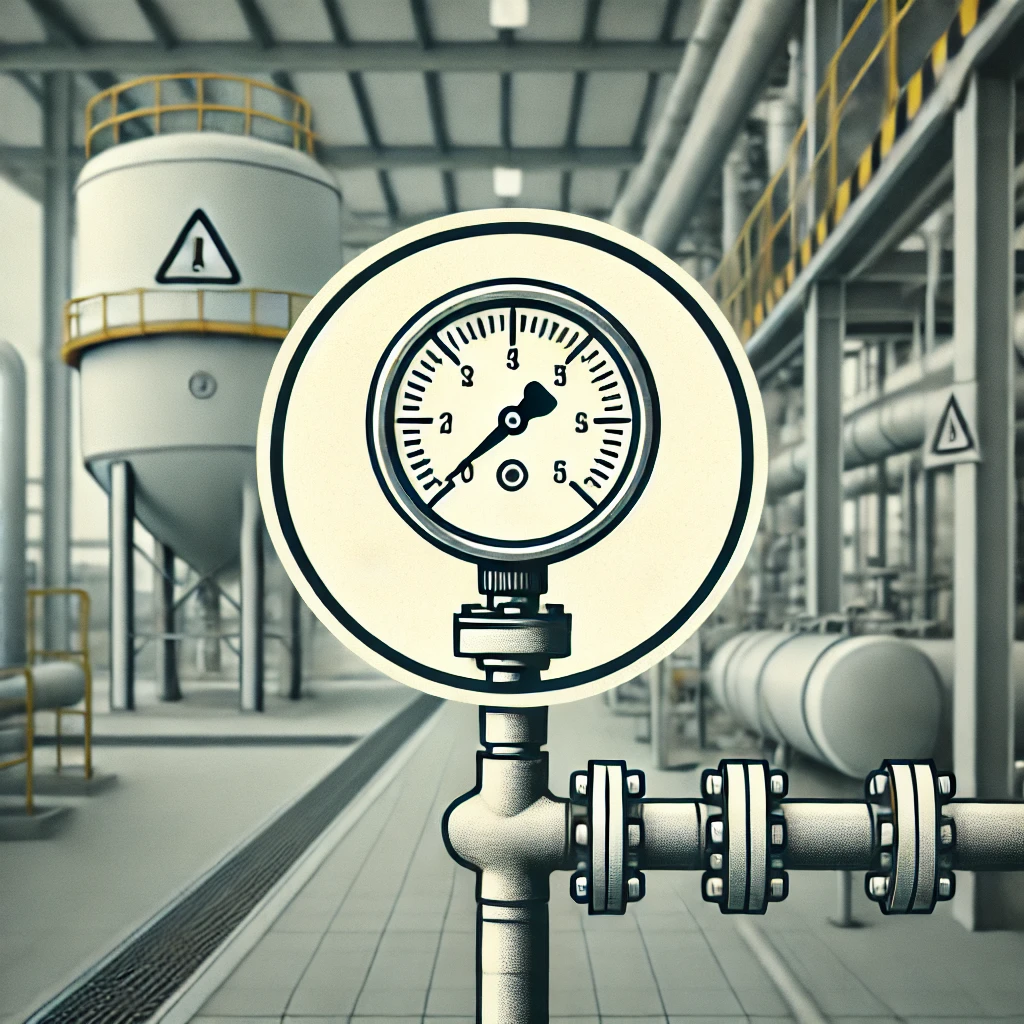
Regarding pressure gauges, corrosion is a significant issue in chemical facilities. Exposure to corrosive substances, high temperatures, and harsh chemicals can harm measuring instruments, resulting in incorrect readings, equipment failure, and expensive downtime.
Picking up the right measuring equipment and applying correct maintenance techniques can help pressure gauges last longer and guarantee performance reliability. This blog will walk over practical ways to stop corrosion and maintain the effective operation of your pressure gauges.
Why Pressure Gauge Corrosion is a Major Issue in Chemical Plants
Because of the hostile settings in which they operate, pressure gauges at chemical plants are subject to dangerous compounds such as acids, alkalis, and corrosive gases. Corrosion can weaken the materials used to construct a gauge if it isn’t designed to endure these kinds of environments, leading to:
- Inaccurate pressure readings
- Leaks and equipment failures
- Increased maintenance and replacement costs
- Safety hazards due to system malfunctions
Using corrosion-resistant gauges and maintaining a regular maintenance schedule helps avoid these problems.
How to Prevent Pressure Gauge Corrosion
1. Use Corrosion-Resistant Materials
The first step in preventing corrosion is choosing the correct material for your pressure gauge. Different substances react differently with other metals. Hence, it is essential to select a gauge from corrosion-resistant materials.
Recommended materials for chemical plants:
- Stainless Steel (316L): Highly resistant to most chemicals, acids, and moisture.
- Hastelloy: Excellent resistance to strong oxidizers and harsh chemicals.
- Monel: Perfect for managing highly corrosive materials, including seawater and acids.
- PTFE Coated Gauges: Provides an extra layer of protection against aggressive chemicals.
Using a gauge with the appropriate material ensures durability and accurate readings in demanding environments.
2. Install a Protective Diaphragm Seal
A diaphragm seal protects The pressure gauge from process fluid and corrosive chemicals, which forms a barrier between the two. These seals provide further protection and come in PTFE, Tantalum, or Hastelloy, among other materials.
Benefits of diaphragm seals:
- Prevents fluid contamination inside the gauge
- Extends gauge lifespan by shielding internal components
- Allows for safer pressure measurement in hazardous environments
For maximum protection, ensure the diaphragm seal material is compatible with the chemicals used in your plant.
3. Choose the Right Mounting Location
Longevity depends on correct pressure gauge positioning. Keep it away from places with excessive wetness, very hot temperatures, or direct chemical exposure while mounting. Protective enclosures or remote installation are recommended to reduce damage and ensure accurate readings and long-term dependability in chemical facilities.
4. Implement a Regular Maintenance Routine
Preventing corrosion and ensuring gauges stay in perfect working condition depend on routine maintenance. Frequent inspections can help find early rust indicators before they severely damage anything.
Maintenance tips for pressure gauges:
- Check for rust, discoloration, or material degradation.
- Ensure accurate readings by testing against a calibrated standard.
- Avoid using harsh cleaning agents that could damage protective coatings.
- If a gauge shows wear, replace it to avoid sudden failure.
A well-maintained gauge lasts longer and provides more reliable pressure measurements.
5. Use Chemical-Resistant Coatings
You can coat the gauge and its parts with chemical-resistant materials to protect them from corrosion. Layers of protective coverings like epoxy, PTFE, or ceramic coats give your equipment an extra defense against rough conditions.
When selecting a coated pressure gauge, ensure the coating is compatible with the chemicals in your plant to maximize protection.
6. Monitor Operating Conditions
To avoid breakdowns caused by corrosion, monitoring the plant’s environmental conditions is essential. Factors such as humidity, temperature fluctuations, and chemical exposure significantly affect gauge deterioration.
Best practices for monitoring conditions:
- Use humidity control systems in high-moisture areas
- Regularly check temperature fluctuations that might affect gauge performance
- Record pressure readings frequently to detect any abnormalities early
You can take proactive measures to protect your gauges from premature corrosion by staying aware of operating conditions.
Final Thoughts
Even though corrosion is a significant problem in chemical plants, there is a way to protect your pressure gauge from harm and make it last longer. Using diaphragm seals, choosing the correct mounting location, utilizing corrosion-resistant materials, and adopting a good maintenance program can protect your equipment and ensure accurate pressure measurements.
If you need reliable pressure gauges for your chemical plant, check out SS Hussain for high-quality measuring equipment.
